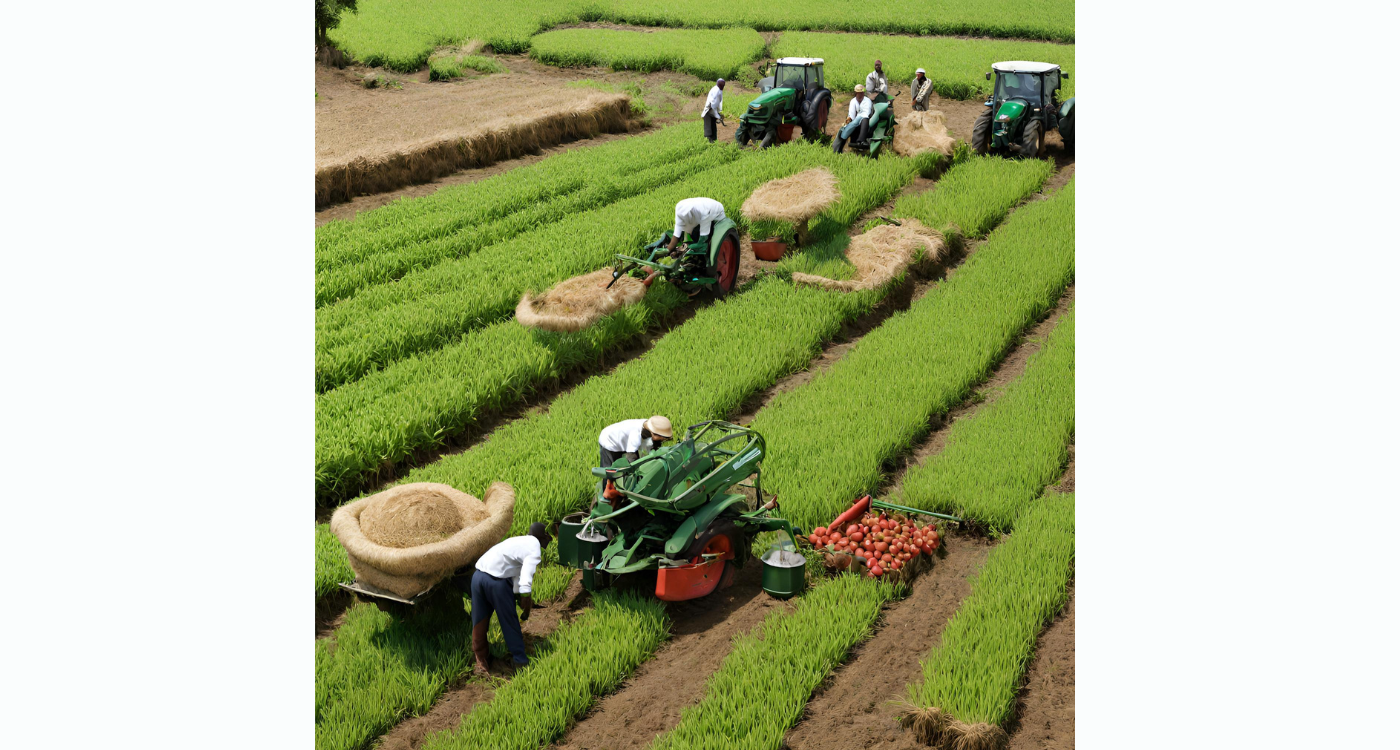In the world of agriculture, the adage “strength in numbers” couldn’t ring truer. Farmers face numerous challenges, from unpredictable markets to fluctuating prices and limited access to resources. It’s here that agricultural cooperatives step in, playing a pivotal role in unifying farmers to help them collectively improve their bargaining power and access to essential resources.
These cooperative entities, often formed by farmers themselves, bring a myriad of benefits to agricultural communities. In this article, we will explore the profound significance of agricultural cooperatives, how they empower farmers, and why they have become a cornerstone of sustainable agriculture and rural development. From pooling resources to enhancing market opportunities, these cooperatives are the key to a more prosperous and resilient farming future. So, let’s delve into the world of agricultural cooperatives and discover the power of unity among farmers.
What are Agricultural Cooperatives?

Agricultural cooperatives, often referred to as “agricoop” or “agri co-ops,” are voluntary, member-owned organizations formed by farmers to collectively address common challenges, improve their bargaining power, and enhance their access to essential resources. These cooperative entities are established to promote collaboration and solidarity among farmers within a particular region, community, or agricultural sector.
The primary goals of agricultural cooperatives are as follows:
1. Collective Marketing: By pooling their agricultural produce, farmers in a cooperative can negotiate better prices with buyers, access wider markets, and improve their overall market position.
2. Access to Resources: Cooperatives can provide their members with cost-effective access to resources such as seeds, fertilizers, equipment, and credit, which might be challenging for individual farmers to obtain.
3. Risk Mitigation: By diversifying production and sharing risks, agricultural cooperatives help members manage the impact of unpredictable factors like weather, pests, and market fluctuations.
4. Knowledge Sharing: Cooperatives often serve as knowledge-sharing hubs, offering training, information, and best practices to help farmers enhance their skills, adopt innovative techniques, and improve their overall productivity.
Agricultural cooperatives operate based on democratic principles, with each member typically having an equal say in decision-making, often following a one-member, one-vote system. These organizations can be influential in strengthening rural communities, supporting sustainable farming practices, and contributing to the economic well-being of small-scale and family farmers.
Benefits of Agricultural Cooperatives

- Enhanced Bargaining Power: By pooling resources and working together, farmers within a cooperative can negotiate better prices for their produce, acquire inputs at lower costs, and secure more favorable terms with buyers. This collective strength helps level the playing field in the market.
- Access to Resources: Cooperatives often provide members with access to essential resources such as seeds, fertilizers, and equipment. This accessibility can significantly reduce the financial burden on individual farmers and promote sustainable farming practices.
- Market Opportunities: Agricultural cooperatives facilitate market access for small-scale farmers. They can collectively market products, explore new markets, and even add value to their produce. This can lead to higher income and a broader customer base.
- Risk Mitigation: By diversifying production and sharing risks among members, agricultural cooperatives help farmers manage the impact of adverse weather, market fluctuations, or other unexpected challenges.
- Knowledge Sharing: Cooperatives are hubs for knowledge exchange. They provide training, information, and best practices that empower farmers to improve their skills and adopt innovative techniques.
Challenges of Agricultural Cooperatives

- Management and Governance: Efficiently running a cooperative requires capable management and a transparent governance structure. Sometimes, internal disputes and mismanagement can hinder the cooperative’s effectiveness.
- Access to Capital: Securing capital for the cooperative’s operations, investments, and expansion can be a challenge. Financial constraints may limit the cooperative’s growth potential.
- Member Commitment: Active participation and commitment from all members are crucial for a cooperative’s success. Maintaining this engagement can be a challenge, as some members may not fully contribute or engage in the cooperative’s activities.
- Market Dynamics: Agricultural markets are influenced by a myriad of factors, and cooperatives must navigate these complexities. Challenges can include price volatility, changing consumer preferences, and competition from larger agribusinesses.
How Agricultural Cooperatives Operate
Agricultural cooperatives typically follow these operational steps
- Formation: A group of farmers comes together, often guided by a common goal or need, and decides to form a cooperative. They establish a legal structure and governance framework.
- Membership: Farmers become members by buying shares or contributing capital. Each member has a say in the cooperative’s decisions, typically on a one-member, one-vote basis.
- Pooling Resources: The cooperative pools resources, both financial and agricultural, to achieve collective objectives. These resources can include land, equipment, seeds, and labor.
- Value Addition: Some cooperatives add value to their produce by processing, packaging, or branding products. This enhances marketability and allows for higher prices.
- Market Access: Cooperatives negotiate with buyers, sell products, and market the collective produce. They also help members access credit, insurance, and input supplies.
- Profit Distribution: Profits earned by the cooperative are typically distributed among members based on their level of participation or shareholding.
Tips for Forming and Managing Successful Agricultural Cooperatives:
Forming and managing a successful agricultural cooperative requires careful planning and execution.
Here are some tips to help farmers get started:
- Identify a need: Before forming a cooperative, farmers should identify a specific need or opportunity that can be addressed through cooperation.
- Develop a business plan: A business plan should outline the goals, operations, and financing needs of the cooperative.
- Recruit members: Farmers should recruit members who share their vision and are willing to actively participate in the cooperative.
- Establish governance and management structures: Cooperatives should have a clear governance and management structure, with defined roles and responsibilities.
- Secure financing: Cooperatives should identify sources of financing and develop a plan for accessing capital.
- Build partnerships: Cooperatives should build partnerships with suppliers, buyers, and other stakeholders to help them succeed.
- Provide value to members: Cooperatives should provide enough value to their members to keep them engaged and active. This might include access to new markets, improved bargaining power, and access to resources.
- Communicate effectively: Good communication is essential for the success of a cooperative. Members should be kept informed about the cooperative’s activities and decisions.
- Monitor and evaluate performance: Cooperatives should regularly monitor and evaluate their performance to ensure that they are meeting their goals and objectives.
- Address challenges promptly: Cooperatives should address challenges promptly to prevent them from becoming bigger problems.
Conclusion

Agricultural cooperatives are more than just business entities; they are symbols of unity and empowerment among farmers. They offer substantial benefits, including improved bargaining power, access to resources, market opportunities, risk mitigation, and knowledge sharing. However, they also face challenges related to management, access to capital, member commitment, and market dynamics.
Despite these challenges, agricultural cooperatives have proven to be vital in promoting sustainable agriculture, enhancing rural livelihoods, and strengthening farming communities. By working together, farmers are better equipped to navigate the complexities of the agricultural sector and build a more secure and prosperous future for themselves and their communities. As a cornerstone of collaborative farming, agricultural cooperatives continue to play a crucial role in shaping the future of agriculture and rural development.













